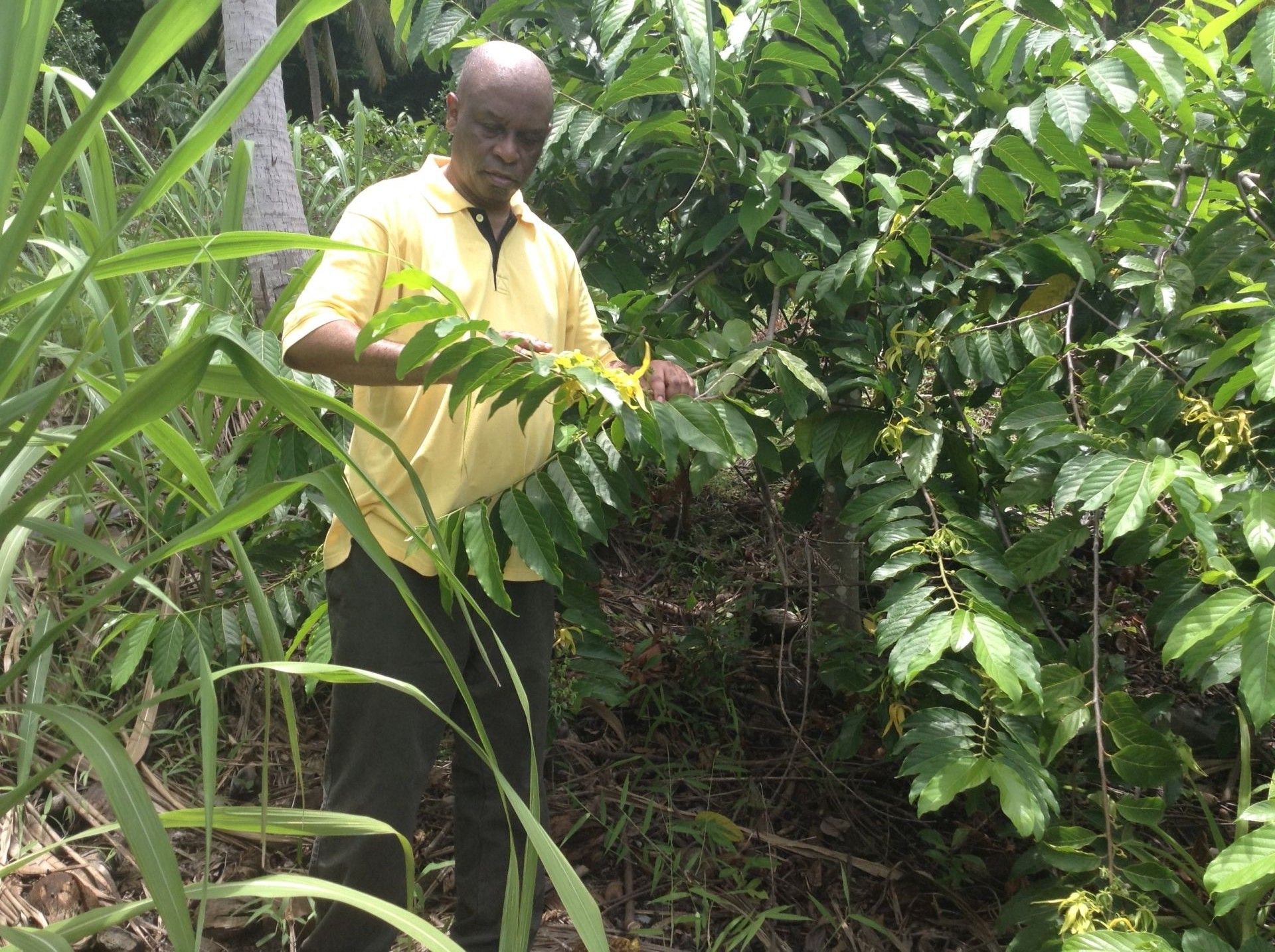
“Ylang Ylang, Cananga odorata var. genuina is a very particular flower, that produces different qualities of essential oils used in various products, from perfume, soap, aromatherapy, cosmetics, etc.
Ylang Ylang essential oil is produced through a fractional steam-distillation process that could take from 1-24 hours.
Normally there are five grades of ylang ylang essential oils: Ylang Ylang Super Extra, Extra, First, Second and Third.
According to the Association Francaise de normalisation (AFNOR), the Comoros is the only country that can produce Super Extra grade which is mainly used in high end perfume.
The Complete grade is obtained by the blending of all the five grades. The grades of the Ylang Ylang essential oils are determined according to the time the flowers are distillated.
In the distillation process, the number of hours the flowers get distilled determines what grade of essential oil could be produced.
The first portion of the distillation is collected after 60-90 minutes and is called Super Extra grade.
Extra grade is obtained after 2-3 hours.
First grade is obtained after 3-4 hours.
Second grade from 4-6 hours.
Third grade is obtained after 15-24 hours.
The quality of grade of the essential oil is measured with a densimeter that determines the density of the oil. Since there are no agreed standards, the quality of a given grade varies from one producer to another. However, in general the density of each grade is as following: Super Extra 0,965-0,980 degree. Extra 0,965-0,950 degree. First 0,950-0,945 degree. Second 0,945-0,925 degree. Third 0,925-0,910 degree.
Since the Complete grade is mainly used in aromatherapy, it doesn’t request a specific density.”
Mahmoud Aboud-The Ylang-Ylang Man
CEO and Ambassador – bioylang.com
READ THE FULL INTERVIEW WITH MAHMOUD IN MY BOOK...
"Fragrance is my Favourite F-Word"
Ylang Ylang essential oil is produced through a fractional steam-distillation process that could take from 1-24 hours.
Normally there are five grades of ylang ylang essential oils: Ylang Ylang Super Extra, Extra, First, Second and Third.
According to the Association Francaise de normalisation (AFNOR), the Comoros is the only country that can produce Super Extra grade which is mainly used in high end perfume.
The Complete grade is obtained by the blending of all the five grades. The grades of the Ylang Ylang essential oils are determined according to the time the flowers are distillated.
In the distillation process, the number of hours the flowers get distilled determines what grade of essential oil could be produced.
The first portion of the distillation is collected after 60-90 minutes and is called Super Extra grade.
Extra grade is obtained after 2-3 hours.
First grade is obtained after 3-4 hours.
Second grade from 4-6 hours.
Third grade is obtained after 15-24 hours.
The quality of grade of the essential oil is measured with a densimeter that determines the density of the oil. Since there are no agreed standards, the quality of a given grade varies from one producer to another. However, in general the density of each grade is as following: Super Extra 0,965-0,980 degree. Extra 0,965-0,950 degree. First 0,950-0,945 degree. Second 0,945-0,925 degree. Third 0,925-0,910 degree.
Since the Complete grade is mainly used in aromatherapy, it doesn’t request a specific density.”
Mahmoud Aboud-The Ylang-Ylang Man
CEO and Ambassador – bioylang.com
READ THE FULL INTERVIEW WITH MAHMOUD IN MY BOOK...
"Fragrance is my Favourite F-Word"

